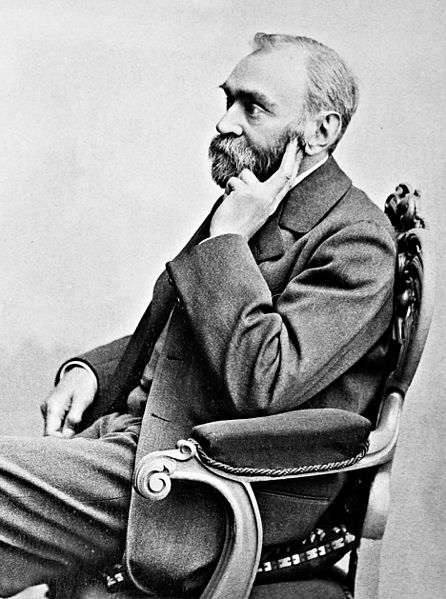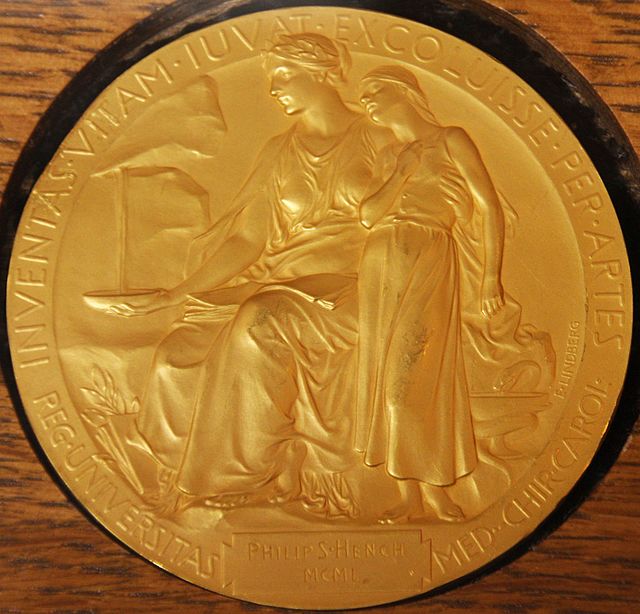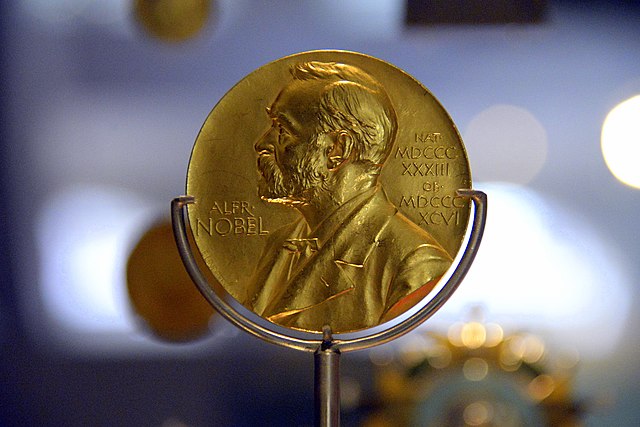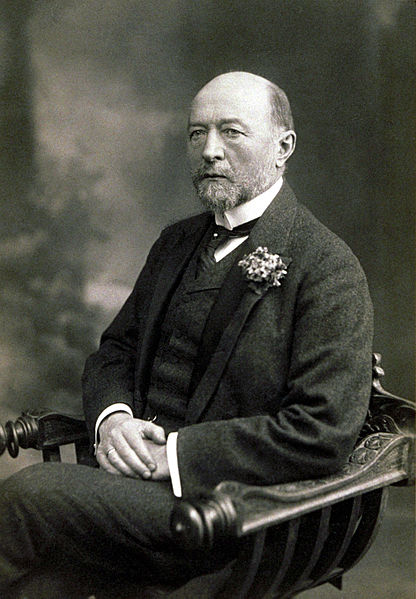Gertrude "Trudy" Belle Elion was an American biochemist and pharmacologist, who shared the 1988 Nobel Prize in Physiology or Medicine with George H. Hitchings and Sir James Black for their use of innovative methods of rational drug design for the development of new drugs. This new method focused on understanding the target of the drug rather than simply using trial-and-error. Her work led to the creation of the anti-retroviral drug AZT, which was the first drug widely used against AIDS. Her well known works also include the development of the first immunosuppressive drug, azathioprine, used to fight rejection in organ transplants, and the first successful antiviral drug, acyclovir (ACV), used in the treatment of herpes infection.
Elion in 1983
Nobel Prize in Physiology or Medicine
The Nobel Prize in Physiology or Medicine is awarded yearly by the Nobel Assembly at the Karolinska Institute for outstanding discoveries in physiology or medicine. The Nobel Prize is not a single prize, but five separate prizes that, according to Alfred Nobel's 1895 will, are awarded "to those who, during the preceding year, have conferred the greatest benefit to humankind". Nobel Prizes are awarded in the fields of Physics, Medicine or Physiology, Chemistry, Literature, Economics and Peace.
Nobel was interested in experimental physiology and set up his own laboratories.
The reverse side of the Nobel Prize for Physiology or Medicine
Alexander Fleming's 1945 Nobel Prize medal for Physiology and Medicine on display at the National Museum of Scotland, Edinburgh.
Emil von Behring received the first Nobel Prize in Physiology or Medicine in 1901.





